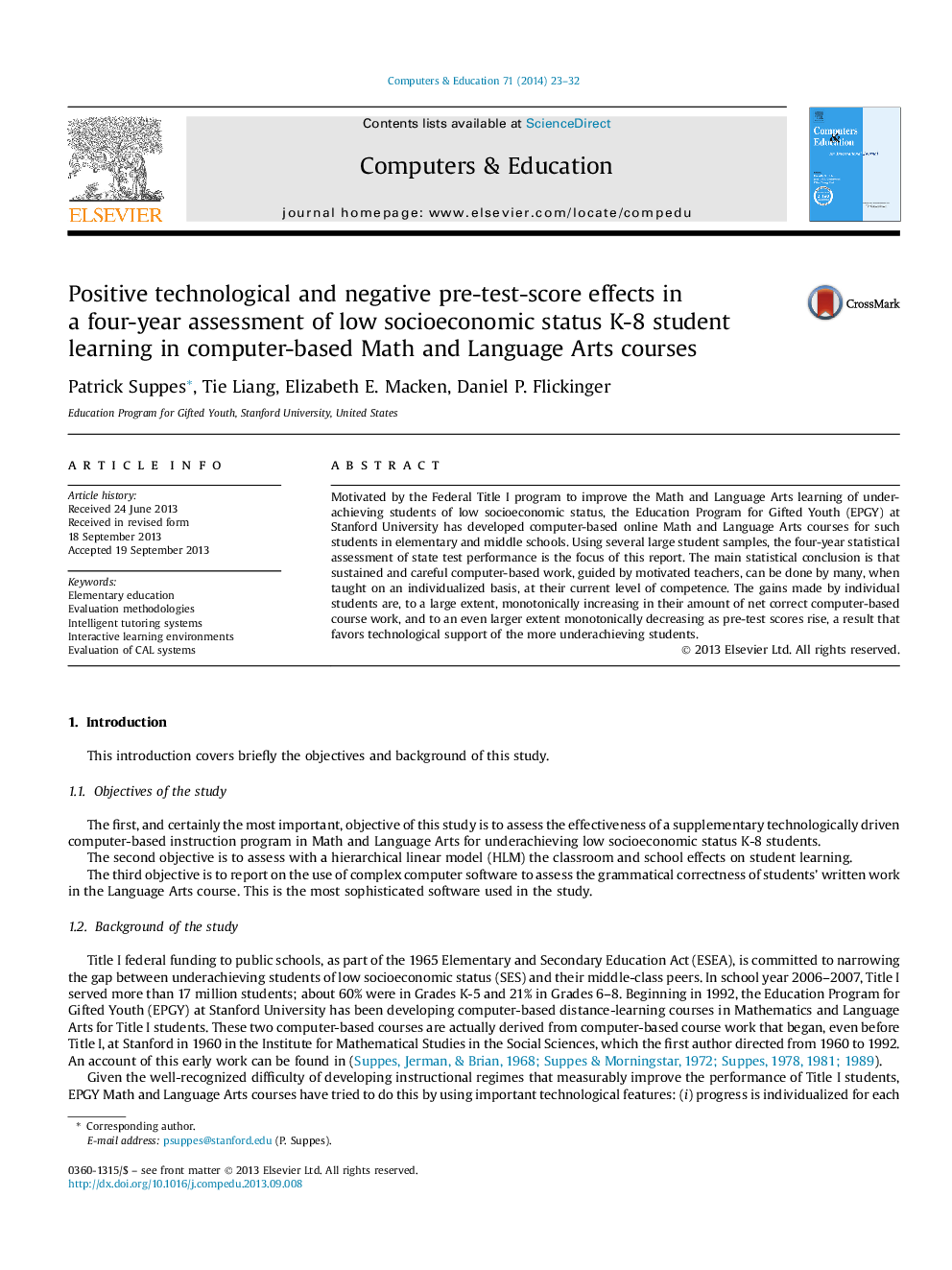| کد مقاله | کد نشریه | سال انتشار | مقاله انگلیسی | نسخه تمام متن |
|---|---|---|---|---|
| 348434 | 618188 | 2014 | 10 صفحه PDF | دانلود رایگان |

• Amount of work done in computer-based courses is a significant predictor of state test score gains.
• Significant increase in effect-size gains occur for low socioeconomic K-8 student learning.
• EPGY Math and Language Arts courses are effective in improving students' state test performances.
• Positive technological effects and negative pretest score effects for underachieving students.
Motivated by the Federal Title I program to improve the Math and Language Arts learning of underachieving students of low socioeconomic status, the Education Program for Gifted Youth (EPGY) at Stanford University has developed computer-based online Math and Language Arts courses for such students in elementary and middle schools. Using several large student samples, the four-year statistical assessment of state test performance is the focus of this report. The main statistical conclusion is that sustained and careful computer-based work, guided by motivated teachers, can be done by many, when taught on an individualized basis, at their current level of competence. The gains made by individual students are, to a large extent, monotonically increasing in their amount of net correct computer-based course work, and to an even larger extent monotonically decreasing as pre-test scores rise, a result that favors technological support of the more underachieving students.
Journal: Computers & Education - Volume 71, February 2014, Pages 23–32